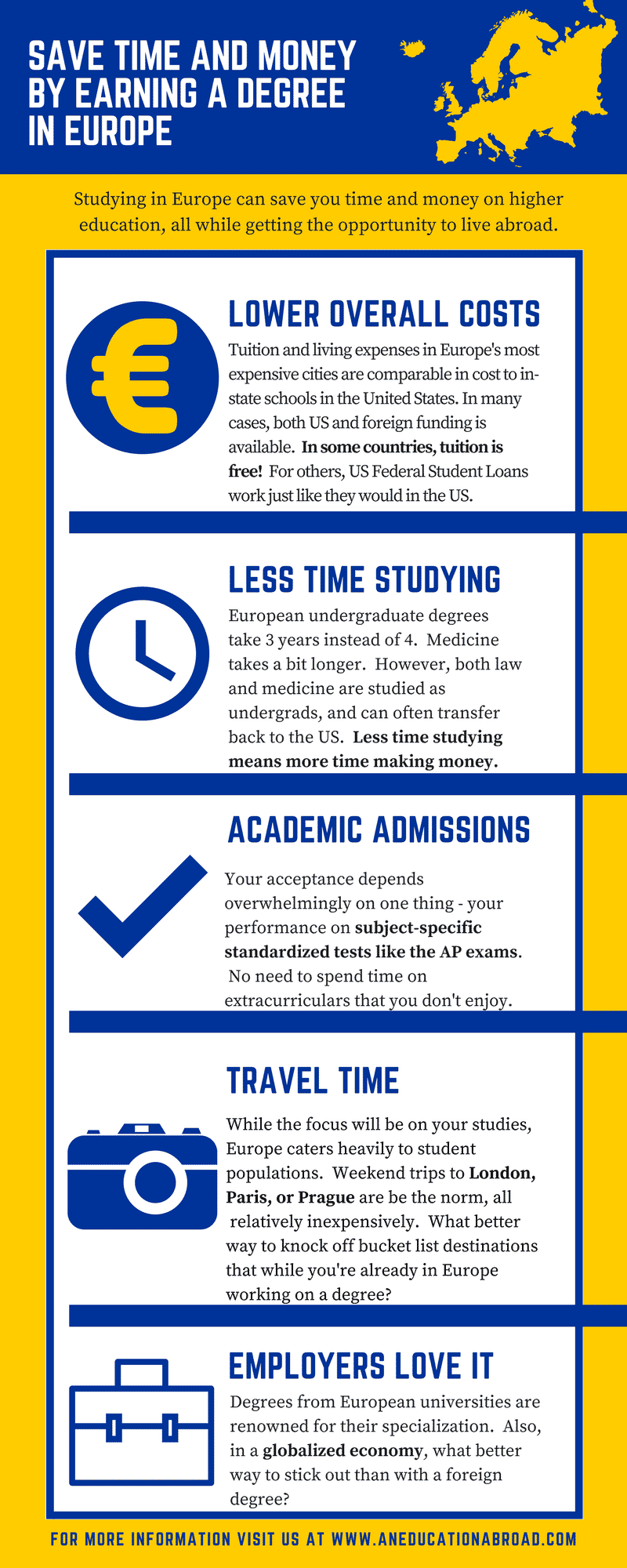An Opportunity You Haven’t Considered: Studying in the UK
The arrival of Fall means football, cool weather, and pumpkin spice lattes. It also means it is time for seniors to start applying to colleges, and for juniors to realize that they will need to know where they want to apply. For many people, that will mean taking I-70 west to either Lawrence or Manhattan or east to Columbia.
But what about those who want to get a bit farther away?
Sure, you could go to St. Louis or Chicago, or even San Francisco or Boston. By the time you’ve gone that far from home, you might as well go to a different country, right?
Exactly!
For many students, getting a degree in the United Kingdom, or elsewhere in Europe, makes perfect sense. While it may sound like a bit of a pipe dream, there are a number of great reasons to do so:
- With a few exceptions, you won’t have to take any tests that you weren’t already preparing for. AP and SAT subject exams are the basis of many UK admissions decisions, and the team at Get Smarter Prep is happy to help make sure you do your best!
- Most obviously, a bachelor’s degree in Europe takes three years to earn. That is not with any AP or dual-enrollment credit, or with spending your summers on campus. Three years is the standard length to earn a BA. Some degrees take a bit longer, but they are the exception.
- There is no concept of general education, or pre-law or pre-medicine for that matter. If you want to be a doctor, you start studying medicine right out of high school! The degree transfers back to allow you to do your residency in the United States. Meanwhile, while states have different requirements on permitting foreign-educated lawyers to practice, most of the major legal markets do permit foreign-trained lawyers (for example, Kansas does not, but Missouri, Illinois, California, New York, and Washington, DC all do).
- British universities are among the best in the world. While there are typically more US universities on the list, Oxford and Cambridge are almost always near the very top. Plenty of other great universities, like the London School of Economics and St. Andrews, make up the British educational system. Also, if you are competitive, you stand a good shot of getting in based on the fact that few Americans study for an undergraduate degree abroad – 15% of Americans who apply to Cambridge are admitted, compared to 5.2% of Harvard applicants and only 4.7% of applicants to Stanford.
- It is difficult to beat the international experience of earning a degree abroad. Unlike a one semester study abroad, you will become immersed in a completely different culture, with plenty of opportunities to travel further. While a weekend away in Omaha can be nice, a weekend in Paris sounds pretty incredible, doesn’t it?
- Finally, the overall net cost of attending a university abroad is lower, in no small part because it is a three year degree. In fact, the overall savings over four years is approximately $14,000. Here’s the math: The total cost of attendance for a public university in Kansas for an in-state student is $26,000 a year. That includes tuition, fees, room, and board. Meanwhile, it is around $44,000 a year for a student at LSE, including two flights back to the United States and money for travel throughout Europe, as well as tuition and living expenses. That comes out to a cost of $104,000 for a bachelor’s degree in the United States, compared to $132,000 for the same degree in the UK. However, because you will be working a year sooner, you can subtract your salary to get the net cost over four years. Using an average salary of $42,000 (admittedly low for an LSE grad), your net cost for four years in the UK is $90,000. That’s a savings of $14,000!
While studying in Europe is a great opportunity, it’s not for everyone. If you think college is just as much about pledging a fraternity/sorority or tailgating at the big game as it is about class, then you will find social life in the UK and the rest of Europe to be very different. Still, that is not to say student life isn’t vibrant – there will be plenty of opportunities to meet people and build relationships.
Also, because you are applying to a specific course of study, you have to know what you want to do and be committed to it. Otherwise, you’ll find it very difficult to change direction without starting all over.
That said, if you know what you want to study, are up for an adventure, and like the idea of finishing your higher education faster than you could in the States, studying in the UK could be for you! If you’re ready to learn more, ask the Get Smarter Prep Staff (or your tutor) for information on how to get in touch with GSP’s partner for European education consulting, An Education Abroad.
-Written by: Kevin Newton, Founder of An Education Abroad
Tips for Second Semester of Junior Year
Second semester of junior year is a stressful time for most students. In fact, it might be the most stressful semester of high school. I don’t want to add too many things to your likely-unending to-do list, but here are a few important things to consider including in the whirlwind that is this semester, and (bonus!) a couple of things that can wait until after finals.
This semester, you may want to:
Consider an internship. Not while school is in session. On top of everything else you’re attempting to juggle – test prep, school work, extra-curricular activities, actually sleeping at some point – one more commitment in your schedule is probably not advisable. Now is the time, however, to spend some time researching summer opportunities. Consider your interests, investigate your connections, and make a plan for summer now.
Keep working on that college list. All of the planning and scheming that lurks between now and your admissions deadlines next year will hinge upon your college list. If I had a catchphrase, it would probably be “it depends on the school.” Is your ACT score high enough? Do you have to schedule interviews? Can you take a gap year? The answers to all of these questions depend, at least in part, on specific schools you’re considering. If your list has 30 colleges on it, narrow. If you’ve only got one, more research is in order. Research, go to events, and plan more visits!
Connect with teachers and advisors. Second semester is the time to begin asking for recommendation letters. The best teacher to ask is one who knows you well and who can write about your specific strengths, and the best time to ask them is this semester. The sooner you ask, the more likely it is that you’ll get good letters. You can generally expect that you’ll need two letters, but depending on your college list, you may need more, or there may be additional requirements placed on which teachers can write them.
Overwhelmed yet? Here’s the good news. You can wait until this summer to:
Write your college essays. College essays can be overwhelming. Working on them too soon, before you even have access to the applications, can be downright maddening. The Common App goes live on August 1st each year. There is not much to be gained by obsessing over drafts before you have a solid college list and the essay prompts for those colleges. Focus on your grades, your test prep, and your college list, and save the essays for this summer.
Plan the entire rest of your life. Actually, this one can probably wait even longer. However, if you’ve got seemingly pressing, urgent questions about your future (my junior year, it was do I want to be an architect?), you don’t have to answer them right now. The key is to avoid limiting yourself too much if you’re unsure. If you think you might want to go into an engineering program, the answer to do I want to take that extra science class? is probably “yes.” Prepare for multiple possibilities. Embrace the creative uncertainty. Explore your options, but don’t feel like you have to be certain right this moment.
For what it’s worth, I had registered for classes in ASU’s architecture program before I changed my mind and enrolled in a tiny liberal arts school on the other side of the country. I don’t really recommend that course of action, but you have time. It’s OK if your college list still looks like a 16- or 17-year-old student who isn’t exactly sure what they want to do for the next fifty years wrote it. I promise.





